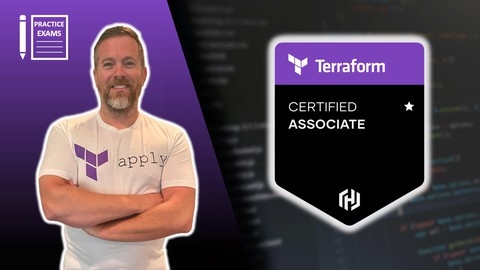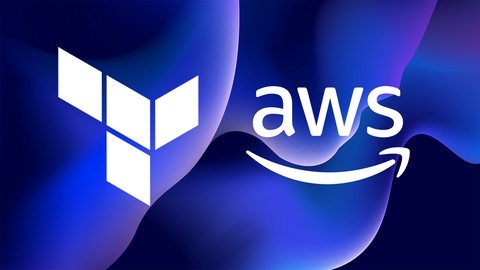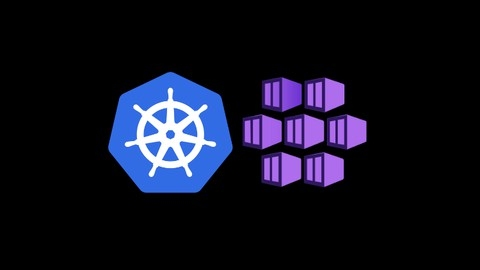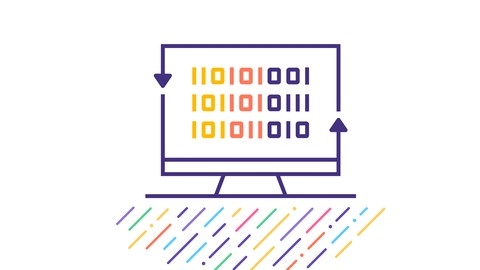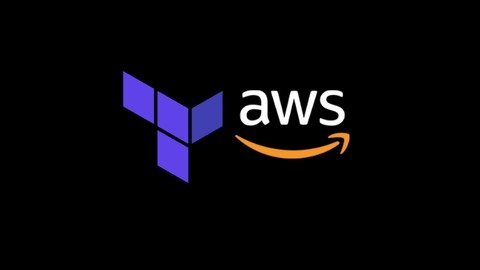Terraform is a powerful tool for infrastructure as code (IaC), enabling developers and system administrators to manage and provision cloud resources in a consistent and automated way.
Using Terraform, you can define and deploy complex infrastructure across multiple cloud providers with a simple, declarative language.
Mastering Terraform is a highly sought-after skill, opening doors to exciting career opportunities in cloud computing, DevOps, and site reliability engineering.
Finding a comprehensive and engaging Terraform course on Udemy can be a daunting task.
With so many options available, it’s easy to feel overwhelmed and unsure where to start.
You’re looking for a course that not only covers the fundamentals of Terraform but also provides practical experience and real-world application.
We’ve analyzed numerous courses and recommend HashiCorp Certified: Terraform Associate 2024 as the best course overall.
This course is designed specifically for the Terraform Associate certification and covers a wide range of topics, from fundamental concepts to advanced techniques.
The course features hands-on labs, quizzes, and practice exams, ensuring you’re well-prepared for both the certification exam and real-world scenarios.
While this is our top pick, there are other great options available.
Keep reading for more recommendations for beginners, intermediate learners, and experts, as well as courses focusing on specific cloud providers and advanced features of Terraform.
HashiCorp Certified: Terraform Associate 2024
This course starts by introducing you to Infrastructure as Code (IAC) and why Terraform is a popular choice for provisioning cloud resources.
You’ll begin by installing Terraform and setting up your development environment, including choosing the right IDE and configuring AWS for hands-on labs.
The course then dives into deploying your first infrastructure with Terraform, covering authentication, resource provisioning, and state management.
As you progress, you’ll learn to read, generate, and modify Terraform configurations, mastering variables, data sources, and expressions.
The syllabus covers advanced topics like modules, workspaces, and remote state management, enabling you to organize and collaborate on complex infrastructures.
Security is a crucial aspect, and the course explores provider versioning, sensitive data handling, and integrating with HashiCorp Vault.
You’ll also learn about Terraform Cloud, Sentinel policy enforcement, and remote backends for enterprise-grade deployments.
The syllabus includes practical challenges to reinforce your learning, followed by an exam preparation section with practice tests and exam-taking tips.
Learn DevOps: Infrastructure Automation With Terraform
The course starts with an introduction to Terraform and guides you through installing it on Windows, MacOS, and Linux.
You’ll also learn about an alternative installation method using Vagrant, ensuring you have the same setup as the instructor.
Next, you’ll dive into Terraform basics, learning about the HashiCorp Configuration Language (HCL) and spinning up your first AWS instance.
The course covers variable types, software provisioning with tools like Chef, Ansible, Puppet, and shell scripts, outputting attributes, remote state management, data sources, templates, and working with other providers beyond AWS.
You’ll also explore modules, both built-in and external, and get an overview of useful Terraform commands like show, graph, import, taint, and untaint.
Quizzes are included to test your knowledge along the way.
Moving on, the course focuses on using Terraform with AWS services like VPCs, NAT gateways, EC2 instances, EBS volumes, user data, static IPs, Elastic IPs, Route53 for DNS, RDS for relational databases, IAM for access management (users, groups, policies, roles), Auto Scaling, Elastic Load Balancers (ELB), and Application Load Balancers (ALB).
You’ll even learn about AWS’s PaaS solution, Elastic Beanstalk.
The course then dives into advanced Terraform usage, covering interpolation, conditionals, built-in functions, for and for-each loops, project structure, the lock file introduced in Terraform 0.14, and manipulating state.
Additionally, you’ll learn about Packer for creating AMIs and integrating it with Terraform and Jenkins for a complete DevOps workflow.
The course also covers using Terraform with Docker on AWS, including building Docker images, pushing them to ECR (Elastic Container Registry), and running them on ECS (Elastic Container Service).
You’ll even learn how to set up a Jenkins workflow to build Docker images, push them to ECR, and update ECS with the latest image using Terraform.
Module development is another topic covered, including an overview of an ECS + ALB module and advanced module development techniques introduced in Terraform 0.12 and 0.13, such as the difference between count and for_each, using for_each with modules, working with complex data types and the flatten() function, and refactoring modules.
The course also covers AWS CodePipeline for Continuous Delivery and Deployments, including integrations with CodeCommit, CodeBuild, and CodeDeploy, and using green/blue deployments to ECS.
If you’re interested in the HashiCorp Infrastructure Automation Certification, the course has a dedicated section covering the learning objectives, understanding Infrastructure as Code (IaC), Terraform basics, using the CLI, interacting with modules, the Terraform workflow, state management, input/output variables, locals, resources, data sources, secret injection, Terraform Cloud, and more.
Finally, you’ll get an introduction to the Cloud Development Kit for Terraform (CDKTF) and a demo using it with Golang and VSCode.
Learn DevOps: Docker, Kubernetes, Terraform and Azure DevOps
You’ll start by mastering Docker and containerization, a crucial skill for working with Kubernetes.
The course guides you through building Docker images for Python, Node.js, and Java applications, pushing them to Docker Hub, and running microservices with Docker Compose.
Next, you’ll dive into Kubernetes itself, provisioning clusters on Google Kubernetes Engine (GKE) and Amazon Elastic Kubernetes Service (EKS).
You’ll deploy your first container to a Kubernetes cluster, grasping core concepts like Pods, ReplicaSets, Deployments, and Services.
The course covers generating Kubernetes YAML configuration, using labels and selectors, and configuring multiple deployments with one service.
For microservices, you’ll learn service discovery via environment variables and DNS, centralized configuration with ConfigMaps, and simplifying access with Ingress.
Infrastructure as Code (IaC) is another major focus, with hands-on experience using Terraform to provision AWS resources like S3 buckets, IAM users, EC2 instances, and load balancers.
You’ll store Terraform state remotely, use workspaces and modules for multiple environments, and integrate Terraform with Azure DevOps for automated Kubernetes cluster provisioning.
The course extensively covers CI/CD pipelines in Azure DevOps, from creating your first pipeline to using stages, variables, artifacts, deployment jobs, approvals, and releases.
You’ll build and push Docker images directly from Azure DevOps pipelines and deploy to AKS and EKS clusters provisioned with Terraform.
Other key topics include Azure DevOps boards/backlogs, Jenkins pipelines for CI, and configuration management with Ansible for automating app deployment.
You’ll get exposure to Visual Studio Code, microservices architecture, AWS/Azure cloud onboarding, and overarching DevOps best practices.
Terraform for the Absolute Beginners with Labs
The syllabus covers everything you need to know to get started with Terraform, HashiCorp’s popular Infrastructure as Code (IAC) tool.
The course begins with an introduction to IAC and explains why Terraform is a great choice.
You’ll learn about the challenges of traditional IT infrastructure and how IAC tools like Terraform can help overcome them.
The course then dives into installing Terraform and understanding the HashiCorp Configuration Language (HCL) syntax.
Once you have the basics down, you’ll explore core Terraform concepts like providers, variables, resource attributes, dependencies, and output variables.
The course includes hands-on labs to help you practice these concepts, ensuring you understand them thoroughly.
You’ll also learn about Terraform state, which is crucial for managing your infrastructure.
The course covers the purpose of state, state considerations, and how to work with remote state using AWS S3 for storage and state locking.
The syllabus then focuses on using Terraform with AWS services like IAM, S3, DynamoDB, and EC2.
You’ll learn how to provision and manage these resources using Terraform, including how to use provisioners to customize EC2 instances after deployment.
The course also covers advanced topics like Terraform import for bringing existing resources under Terraform management, tainting resources for recreating them, and debugging techniques.
You’ll learn about Terraform modules, which allow you to create reusable components, and how to use modules from the Terraform Registry.
Additionally, the course covers Terraform functions and conditional expressions, which are essential for writing more complex configurations.
You’ll also learn about Terraform workspaces, which can be useful for managing different environments like development, staging, and production.
Throughout the course, you’ll have access to hands-on labs, allowing you to practice what you’ve learned in a real-world environment.
The course also includes a presentation deck in PDF format and encourages you to join the course community for additional support and networking opportunities.
HashiCorp Certified: Terraform Associate Practice Exam 2024
This course offers a comprehensive set of practice exams to help you prepare for the HashiCorp Certified: Terraform Associate certification.
The syllabus includes six different practice exams, each designed to mimic the actual certification exam.
The first four exams cover all objectives in the Terraform Associate exam, featuring multiple-choice, multi-select, and true/false questions.
Each exam is timed for 60 minutes, with a 70% minimum passing score, and the questions and answers are randomized to ensure a unique experience every time.
The fifth practice exam is particularly noteworthy, as it includes questions from the instructor’s Terraform Associate Hands-On course, providing a valuable opportunity to test your knowledge from a different perspective.
Like the previous exams, it’s timed for 60 minutes, with a 70% passing score and randomized questions and answers.
Additionally, the course includes a separate quiz focused on Terraform CLI-based questions.
This 20-minute quiz tests your knowledge of popular commands, ensuring you’re well-prepared for any command-line related questions on the actual exam.
The minimum passing score for this quiz is also set at 70%, with randomized questions and answers.
Throughout the course, you’ll encounter questions that closely resemble those on the HashiCorp Certified: Terraform Associate exam, allowing you to familiarize yourself with the format and difficulty level.
By practicing with these exams, you can identify areas where you need further study and gain confidence in your Terraform skills.
The course’s focus on providing a realistic exam experience, combined with its comprehensive coverage of the certification objectives, makes it a valuable resource for anyone preparing for the HashiCorp Certified: Terraform Associate certification.
Terraform for AWS - Beginner to Expert
The syllabus covers a comprehensive range of topics, starting with the fundamentals of Terraform and gradually progressing to advanced concepts.
You’ll begin by setting up your Terraform environment, including installing the necessary software and configuring your AWS account.
The course then dives into the basics of Terraform, teaching you how to create your first resource, initialize Terraform, plan and apply changes, and destroy resources.
As you progress, you’ll learn about variables, a crucial aspect of Terraform, and how to work with different data types like strings, numbers, booleans, lists, and maps.
The course also covers outputs, tuples, and objects, providing you with a solid understanding of how to manage and retrieve data in Terraform.
One of the standout features of this course is its practical approach.
You’ll tackle two challenges that reinforce the concepts you’ve learned, ensuring you gain hands-on experience with Terraform.
The first challenge focuses on building a VPC, while the second challenge involves creating an EC2 instance with dynamic security groups.
Then it delves into modules, a powerful feature that allows you to organize and reuse Terraform code.
You’ll learn how to create and use modules, as well as how to handle module outputs.
Moving forward, you’ll explore advanced topics like IAM (Identity and Access Management), where you’ll learn how to create custom policies and assign them to users using both the AWS console and Terraform.
Additionally, the course covers creating RDS instances with Terraform, a valuable skill for managing databases in AWS.
In the final section, you’ll dive into advanced Terraform concepts such as remote backends, dependencies, count meta-arguments, multiple variable files, Terraform import, and data sources.
These topics will equip you with the knowledge and skills to tackle complex Terraform projects with confidence.
The instructor provides clear explanations and practical examples, ensuring you understand how to apply these concepts in real-world scenarios.
DevOps MasterClass 2024: Terraform Kubernetes Ansible Docker
The course starts by covering the fundamentals of DevOps, including continuous integration, deployment, and testing.
You’ll learn Git for version control and get introduced to Jenkins for automating builds.
The curriculum dives deep into Docker containers, teaching you how to create and manage them, handle networking, build images, and use Docker Compose for multi-container orchestration.
Kubernetes is a significant part of the course.
You’ll learn to set up and manage Kubernetes clusters, work with pods and containers, handle networking and storage, and deploy applications using Kubernetes services.
The course also covers advanced topics like service meshes with Istio and serverless functions.
A major focus is on Infrastructure as Code (IaC) with Terraform.
You’ll understand Terraform’s purpose, workflow, and how to provision resources across multiple cloud providers like AWS and GCP.
The course covers Terraform modules, conditions, loops, and integrating it with other tools like Packer.
Several real-world job scenarios are included to reinforce learning.
The syllabus also includes an extensive section on Ansible for configuration management and automation.
You’ll learn to install and configure Ansible, work with ad-hoc commands, playbooks, variables, and handle errors.
Concepts like templates, delegation, and dynamic inventories are covered too.
Throughout the course, you’ll work with various DevOps tools like Maven, Helm, and gain hands-on experience deploying applications on cloud platforms.
The course even prepares you for the HashiCorp Certified: Terraform Associate certification with practice questions.
Azure Kubernetes Service with Azure DevOps and Terraform
This course covers everything from setting up an Azure Kubernetes Service (AKS) cluster to deploying applications using Terraform and Azure DevOps pipelines.
It starts by introducing you to AKS and guiding you through creating a cluster.
You’ll learn how to explore the cluster using kubectl and the Azure management console, set up the Azure CLI locally, and deploy a sample application to test the cluster.
Next, you’ll dive into Docker fundamentals, including understanding Docker architecture, installing Docker, pulling and building Docker images, and essential Docker commands.
This lays the foundation for working with containerized applications on Kubernetes.
The course then provides a thorough understanding of Kubernetes fundamentals, covering pods, services, replicasets, deployments, and more.
You’ll learn to create and manage these resources using both the imperative (kubectl) and declarative (YAML) approaches.
As you progress, you’ll explore various AKS storage options like Azure Disks, Azure MySQL Database, and Azure Files.
You’ll also learn about Kubernetes secrets and ingress, including context path-based routing, domain name-based routing, and SSL with Let’s Encrypt.
The course covers advanced topics like resource requests and limits, namespaces, virtual nodes, Azure Container Registry integration, and Azure DevOps pipelines for building and deploying Docker images to AKS.
You’ll learn to create pipelines from scratch, use release pipelines, and configure access to multiple AKS clusters.
Additionally, you’ll learn about Active Directory authentication for AKS admins, Kubernetes RBAC with Azure AD, cluster autoscaling, and horizontal pod autoscaling.
The course also teaches you how to create a production-grade AKS cluster using the Azure CLI, including setting up virtual networks, subnets, AD users, groups, and log analytics workspaces.
Finally, you’ll learn to provision AKS clusters using Terraform, both locally and with Azure DevOps pipelines.
You’ll understand Terraform basics, language syntax, input variables, and output values, and apply them to create AKS clusters with custom configurations.
Terraform on Azure
The course starts with an introduction to Terraform and setting up the necessary tools like the Azure CLI and Terraform itself.
You’ll learn how to create SSH key pairs for secure access to your resources.
Next, you’ll dive into the Hashicorp Configuration Language (HCL) used by Terraform.
This includes understanding variables, data types, and essential Terraform commands through hands-on demos.
The core of the course focuses on using Terraform with Azure.
You’ll learn about the Azure Resource Manager and how to create resource groups, virtual networks, virtual machines, network security groups (firewall rules), and configure availability options.
The course covers scaling with scale sets, load balancing, and using availability zones for high availability.
You’ll then explore various Azure services like Azure Database for MySQL, Azure SQL Database, CosmosDB (with a MongoDB demo), Azure Storage (Blob, Table, File, Queue), and Azure Data Lake Storage Gen2.
The course also covers Azure Active Directory for user and group management, the Application Gateway, and Azure Stream Analytics.
The course dives into advanced Terraform concepts like remote state storage, conditionals, functions, and loops (for and foreach).
You’ll learn how to modularize your Terraform code using modules.
Additionally, you’ll get an introduction to the Azure Kubernetes Service (AKS) and see demos on setting up AKS clusters and deploying to them using Azure DevOps.
Towards the end, the course provides a theoretical deep dive into Terraform basics, provisioners, the CLI, workflow, state management, reading/generating configurations, and more.
Throughout the course, you’ll find hands-on demos and examples that reinforce the concepts covered in the lectures.
The syllabus covers a wide range of Azure services and Terraform features, making it a valuable resource for anyone looking to leverage Terraform for managing their Azure infrastructure.
Terraform on AWS with SRE & IaC DevOps | Real-World 20 Demos
The course starts with an introduction to Terraform and its workflow, covering the installation process for different operating systems like MacOS, Windows, and Linux.
You’ll learn how to set up the necessary tools, including VS Code, the Terraform plugin, and the AWS CLI.
This section will guide you through configuring the AWS CLI and executing core Terraform commands like init, plan, and apply.
Next, you’ll dive into Terraform’s settings, providers, and resources.
You’ll understand how to define providers like AWS and create resources like EC2 instances.
The course covers input variables, datasources (like AMI), and output values, allowing you to parameterize your configurations.
The syllabus then explores advanced Terraform concepts like loops, meta-arguments, the splat operator, and functions.
You’ll learn to work with lists, maps, and the for_each meta-argument, making your code more dynamic and reusable.
A significant portion of the course focuses on building a 3-tier AWS architecture using Terraform.
You’ll create VPCs, subnets, security groups, EC2 instances, and load balancers (Classic, Application, and Network).
The course covers context path-based routing, host header routing, query string routing, and custom header routing with Application Load Balancers (ALBs).
You’ll also learn to integrate DNS with databases, set up autoscaling groups with launch templates, and configure CloudWatch alarms and synthetics for monitoring.
The course teaches you how to develop local, reusable Terraform modules from scratch, including a static website module.
Additionally, you’ll learn about remote state storage using AWS S3 and DynamoDB, as well as the remote state datasource.
The course culminates with an introduction to IaC DevOps using AWS CodePipeline, CodeBuild, and GitHub for continuous integration and deployment.
Throughout the course, you’ll execute Terraform commands, verify your resources, and clean up when necessary, providing hands-on experience.





